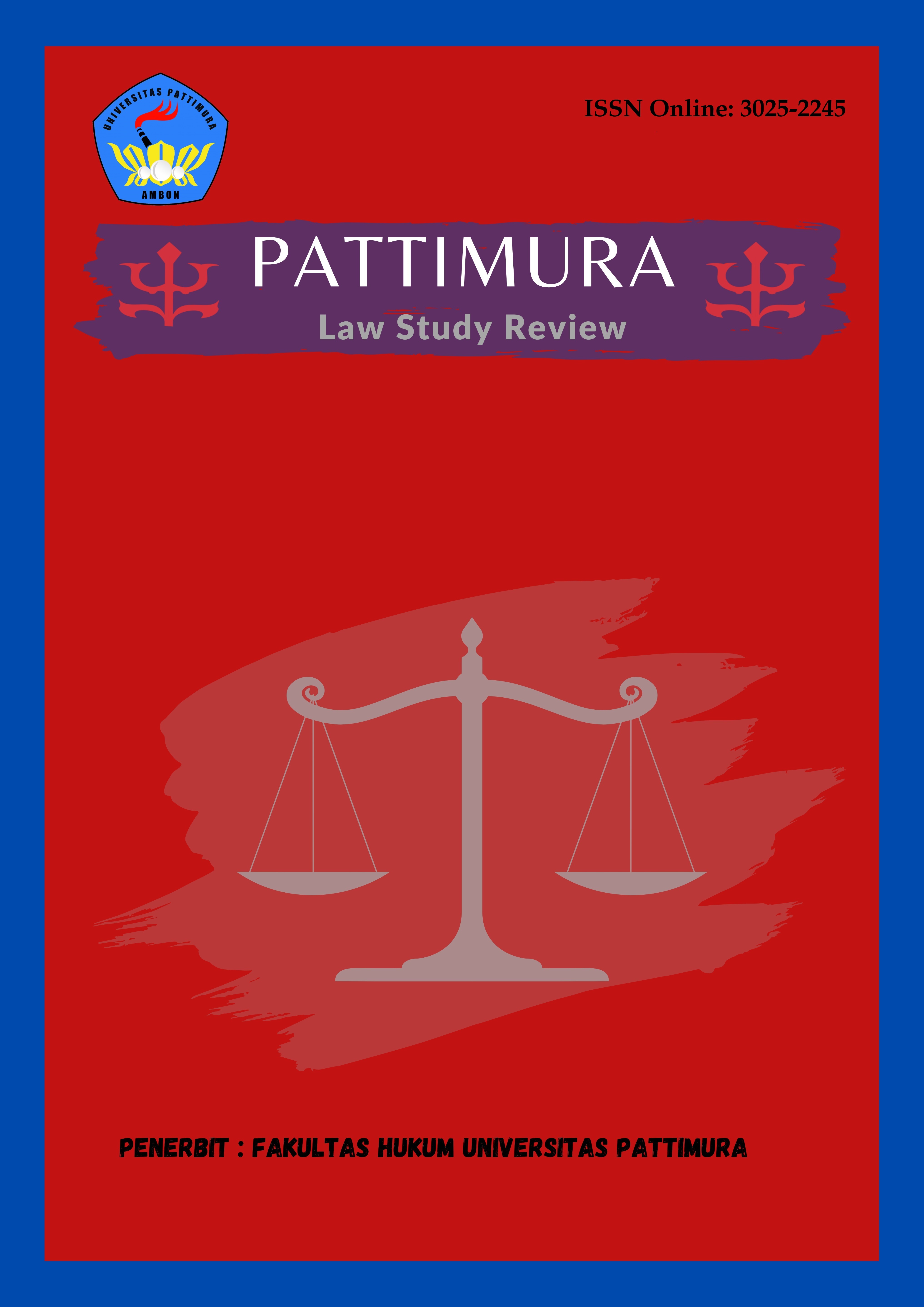Penerapan Prinsip Due Care Oleh Produsen Terhadap Peredaran Obat Di Masyarakat
Abstract
Due care principle or the principle of prudence is a principle that must be applied by producers in producing goods or services in order to ensure that the products produced are really safe for consumption. In addition, Article 8 of the Consumer Protection Law stipulates that business actors are prohibited from producing goods or products that are detrimental or even endanger others. However, in reality there are several pharmaceutical companies that produce syrup drugs that contain Harmful compounds and have already spread among the community causing great losses and threatening consumer lives. So, it is interesting to research from the perspective of applying the Due Care Principle to these problems. The purpose of this study is to find out and explain the application of the due care principle by manufacturers to the circulation of drugs in the community as well as the responsibility of manufacturers for syrup drugs containing harmful compounds. The research method used in this writing is a normative juridical research method with a legislative approach, a case approach and a conceptual approach, to answer the problems raised. The results of this study can be concluded that the application of the Due Care Principle by manufacturers to drug circulation in the community underlines the importance of manufacturers being more careful in maintaining quality and safety in producing and distributing drugs. This includes testing and surveillance, reporting and transparency, distribution chains, and vigilance against contamination of a drug product. And manufacturers who produce syrup drugs containing harmful compounds can be requested strict liability based on Article 19 of the Consumer Protection Law.
Downloads
References
Andi Hamzah, Kamus Hukum, Jakarta: Ghalia Indonesia, 1986.
BPOM:Obat-Sirup-yang-dilaporkan-Kemenkes,-yang-Mengandung-Etilen-Glikol(kompas.com).
Elfahmi Herman, Prinsip-Prinsip Hukum Perlindungan Konsumen, Jakarta: Gramedia, 2016.
Grady N, Tanggung Gugat Pelaku Usaha Otomotif Atas Kerugian Konsumen Akibat Cacat Desain, Jurnal Patrika, 44, no.1, Jakarta, 2022.
https://health.kompas.com/read/2022/11/04/103200468/who-terbitan-peringatan-8-obat-sirup-mengandung-etilen-glikol-yang-dilarang.
Nurbaiti, S, Aspek Yuridis Mengenai Product Liability Menurut Undang-Undang Perlindungan Konsumen (Studi Perbandingan Indonesia-Turki), Jurnal Hukum Prioris, 3, no. 2, 2013.
Pieris, J & Widiarty, W. S, Negara Hukum dan Perlindungan Konsumen, Jakarta: Pelangi Cendekia, 2007.
Sudewi, N.K.A.P.A., I Nyoman, P.B., dan Ni, M.P.U, Perlindungan Hukum Badan Pengawas Obat dan Makanan (BPOM) Terhadap Peredaran Produk Jamu yang Mengandung Bahan Kimia Obat Berbahaya, Jurnal Analogi Hukum, 2, no. 2.
Theresia Louize Pesulima, Jenny K Matuankotta, Sarah S Kuahaty, Perlindungan Konsumen Terhadap Peredaran Produk Kesehatan Ilegal Di Era Pandemik Covid-19 Di Kota Ambon, Sasi, 27, no 2, April-Juni 2021.
Wulan Sutantio, Prinsip-Prinsip Dalam Hukum Perdata, Bandung: Mandar Maju, 2009.
Copyright (c) 2025 Abdul Amtsal, Theresia Louize Pesulima, Agustina Balik (Author)

This work is licensed under a Creative Commons Attribution-NonCommercial 4.0 International License.
Authors who publish their manuscripts in this Journal agree to the following conditions:
- The copyright in each article belongs to the author, as well as the right to patent.
- Authors are able to enter into separate, additional contractual arrangements for the non-exclusive distribution of the journal's published version of the work (e.g., post it to an institutional repository or publish it in a book), with an acknowledgment of its initial publication in this journal.
- Authors are permitted and encouraged to post their work online (e.g., in institutional repositories or on their website) prior to and during the submission process, as it can lead to productive exchanges, as well as earlier and greater citation of published work.
- Authors have the right to self-archiving of the article (Author Self-Archiving Policy)













